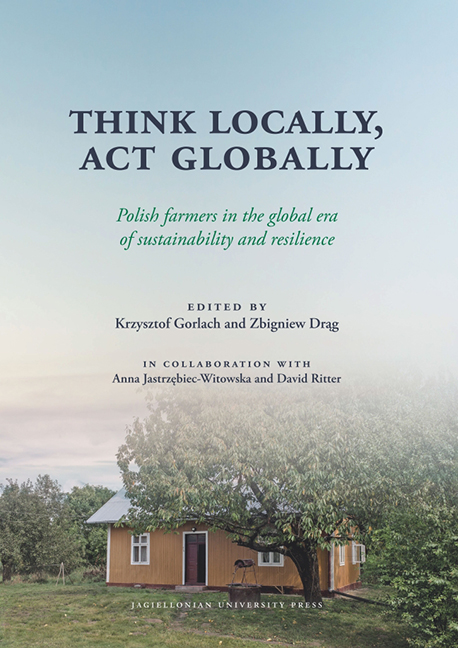Book contents
- Frontmatter
- Contents
- Family Farming: A foreword
- An Introductory Letter from the First Editor: Where the horses, cows, and even cats had their own names
- Part One Theoretical and Methodological Considerations
- Part Two Changes in the Post-Communist Transformation
- Part Three Diversification of Farmers’ Strategies
- Part Four Some Independent Studies
- Conclusion: Some Final Remarks from the First Editor
- Afterword: Renewing a Sociology of Agriculture
- Biograms
Chapter Six - In Search of a Balance: Some aspects of sustainable farming
Published online by Cambridge University Press: 16 July 2022
- Frontmatter
- Contents
- Family Farming: A foreword
- An Introductory Letter from the First Editor: Where the horses, cows, and even cats had their own names
- Part One Theoretical and Methodological Considerations
- Part Two Changes in the Post-Communist Transformation
- Part Three Diversification of Farmers’ Strategies
- Part Four Some Independent Studies
- Conclusion: Some Final Remarks from the First Editor
- Afterword: Renewing a Sociology of Agriculture
- Biograms
Summary
Introductory Remarks
This chapter reviews the issues of sustainable development, which are crucial to the content of the entire publication, and vital to the analysis of the selected results of the study to which the entire project refers. The concept of sustainable development has already been described in detail in the first chapter, which contains theoretical and analytical remarks and research findings. In this chapter, only references directly pertaining to the analyses of sustainability will be made. It should be noted, however, that this chapter will also attempt to approach the problems of sustainable development from the subjective perspective of individuals who are farmers and, because of that, have to make certain decisions and be engaged in ongoing social processes. This is in line with some of the messages that this work aspires to, such as “bringing farmers back in,” which follow the concepts of the famous author George Homans (1964)—concepts well known in the history of sociology—who went against the macro-system perspective that dominated in sociology in the 1950s and early 1960s. Unlike his contemporaries, Homans called for more emphasis on the actions of individual people. Considering this, various aspects of sustainable development will be analyzed that relate to the various contexts and factors influencing the decisions taken by people operating farms in Poland.
When studying the actions of individuals it is always helpful to have some context variables or structural variables which, in one way or another, can influence the context, meaning, or character of decisions taken by individuals. Generally, in the tradition of sociological analyses of agriculture, such variables include farm area and production volume. They are usually, but not always (as is the case with animal breeding), connected with farm area. It is the production that maps out the direction of development and influences the way of thinking about the farm and its management. And even though the contrasts drawn to distinguish between farm types are described somewhat differently in the American sociological tradition (family versus capitalist/corporate farms; see, e.g., Strange, 1988), than in the European tradition (peasant-type versus entrepreneurial farms; see, e.g., Ploeg, 2020), it can be stated, judging by the years of these two publications, that categorical dichotomy of farms has been present in the sociological debate for decades, and is still present now.
- Type
- Chapter
- Information
- Think Locally, Act GloballyPolish farmers in the global era of sustainability and resilience, pp. 295 - 326Publisher: Jagiellonian University PressPrint publication year: 2021

